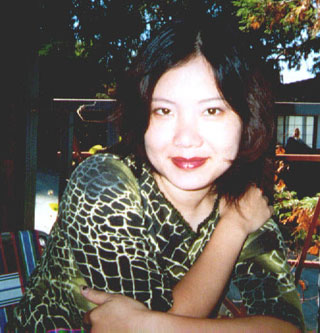Annie Wang:
Beijing’s Badgirl of Letters
PAGE 3 OF 3
GOLDSEA | ASIAMS.NET | ASIAN AMERICAN PERSONALITIES
Annie Wang:
Beijing’s Badgirl of Letters
GS: Why did you decide to relocate to Hong Kong?
AW: I am more in the mainland nowadays. But for starters, Hong Kong makes Westernized Chinese feel very comfortable because of its order and law.
GS: Is it easier to break into the Chinese or the American literary scene?
AW: It’s easier in China.
GS: How did you make the transition from journalist to novelist?
AW: Sometimes I try to run away from writing books and fictions. But at very young, I was a literary-talented child and many years later, a mentor and a famous Chinese novelist told me that I could never stay away from writing fictions because the itch of my talent. I think perhaps she is somewhat right. I do have this pain some times that I feel I need to scream: I write. The women in my family history have been unique, powerful, and un-traditional (my grandma married many times and had quite a few lovers when most Chinese women were still treated as properties of men. My sisters are still single when most of women their ages become faithful wives and good mothers). I guess it’s the genes that keep me explore the fictional world.
GS: Which do you prefer?
AW: I really love being a journalist, more so than being a novelist. I love listening to others’ stories and being an observer although sometimes it is difficult to be so detached. I cry and laugh with the interviewees. Sometimes I wonder whose life I’d rather mimic? Larry King’s or Stephen King’s (Wang means King in Chinese by the way). I guess it’s Larry King’s. Yes, I am freelancing for Western magazines reporting China and writing columns for the Chinese media. I also worked as editor-in-chief of a fashion magazine in Shanghai and it is likely that I will continue this road.
GS: What inspired you to switch from Chinese to English with Lili, your first English novel?
AW: I couldn’t write the “bad girl” Lili in Chinese. It’s interesting that words are always associated with their cultural context. Some attractive concepts become undesirable in Chinese. For example, privacy refers to something that one doesn’t want others to know about, something almost evil. Individualism means selfishness. The direct translation of ambition is a wild heart, again a negative expression in China. These negative connotations of words contradicted what I believed, blocking the free flow of my thoughts. Moreover, I wanted to explore subjects like female sexuality and class differences, which were taboo in China.
| < |

A 1991 Annie Wang glamour shot. (Courtesy of Annie Wang) |

